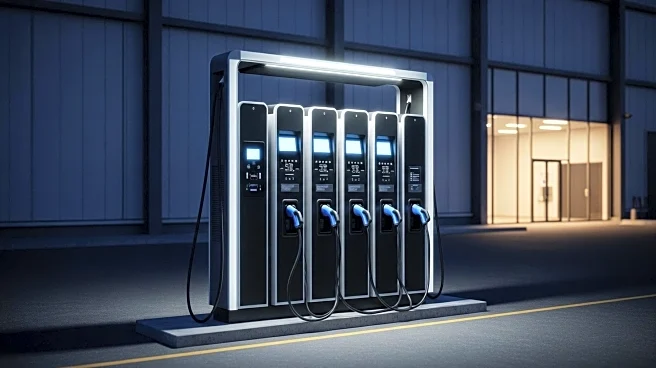What's Happening?
The Mercedes-Benz Ludwigsfelde plant in Eastern Germany is undergoing a transition to electric van production, raising concerns about long-term job security for its workforce. Despite significant investments in automation and electromobility, recent restructuring plans suggest potential workforce reductions from 2,000 to 500 employees by 2030. The plant's shift aligns with Mercedes-Benz's broader 'Next Level Performance' austerity program, aiming for €5 billion in savings by 2027. These changes reflect the company's focus on cost efficiency and technological innovation.
Why It's Important?
The transition to electric vehicle production at Ludwigsfelde highlights the broader challenges faced by the automotive industry in balancing technological advancement with workforce stability. The potential job cuts could exacerbate regional economic disparities in Eastern Germany, which already faces higher unemployment rates compared to the national average. The situation underscores the tension between corporate resilience and regional economic stability, with significant implications for local communities and the automotive sector.
What's Next?
Mercedes-Benz will need to address workforce concerns and outline a clear production plan beyond 2030 to stabilize the region's industrial base. Government partnerships and public policy interventions may play a critical role in mitigating the socio-economic impact of these changes. The company's ability to balance innovation with workforce retention will be crucial for sustaining regional stability.









